What life is like for refugees in US sanctuary cities since Trump came to power
- Published
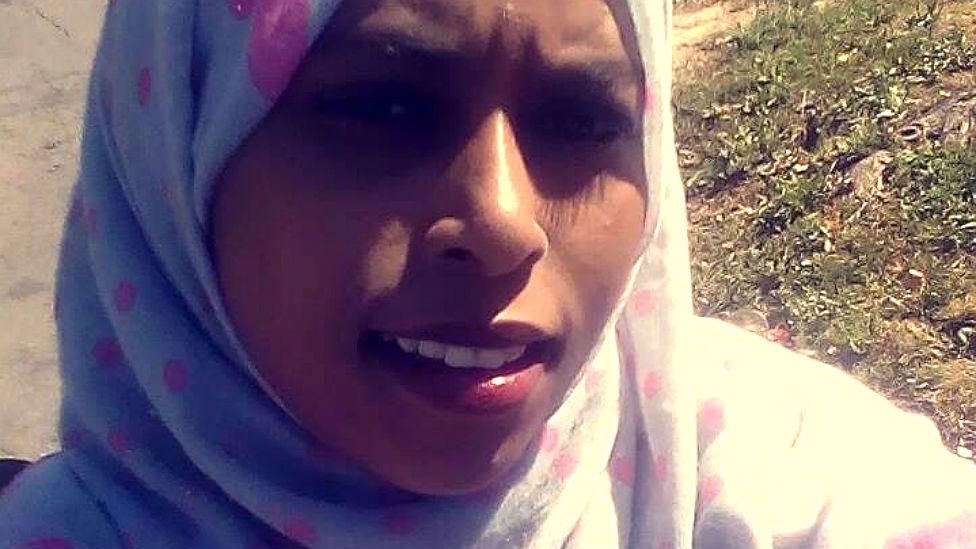
Khadijo Abdul Kadir was 15 when she left the Dadaab refugee camp in Kenya for life in New York as a legal immigrant.
Now a university student in Syracuse, New York, she was recently forced to leave her home for a second time.
She moved out of student accommodation after a housemate tore up her Koran and tossed the pages around their bathroom.
Khadijo says life in New York, which is a sanctuary city, has changed since Donald Trump became president.
As part of his plan to get tough on US immigration, President Trump wants to scrap sanctuary cities, which are safe havens where illegal immigrants can settle.
Sanctuary cities across America include New York, San Francisco, Washington and Chicago.
Donald Trump has said he will pull funding from sanctuary cities if they continue to shelter refugees.
But many mayors vowed to defy his order to protect people living in their cities.
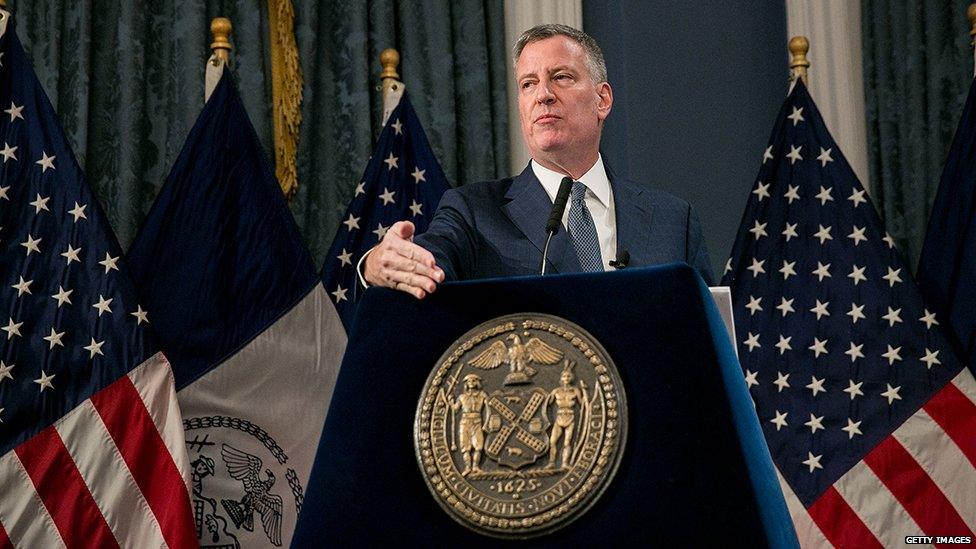
New York's Bill de Blasio is among the mayors who vowed to defy Trump's orders on sanctuary cities
Khadijo arrived in the US legally but says sanctuary cities are crucial for all refugees looking for safety in the US.
"Sanctuary cities were very important because we never knew what changes in politics would come," Khadijo tells Newsbeat.
"We were here legally but we never knew what could change."
Khadijo says that friends of hers were bullied on the street for their appearance before the change in administration.
Now, attitudes have become more negative since Trump's win in the 2016 US election, she explains.
She believes the president and right-wing media outlets are responsible for unfair portrayals of immigrants.
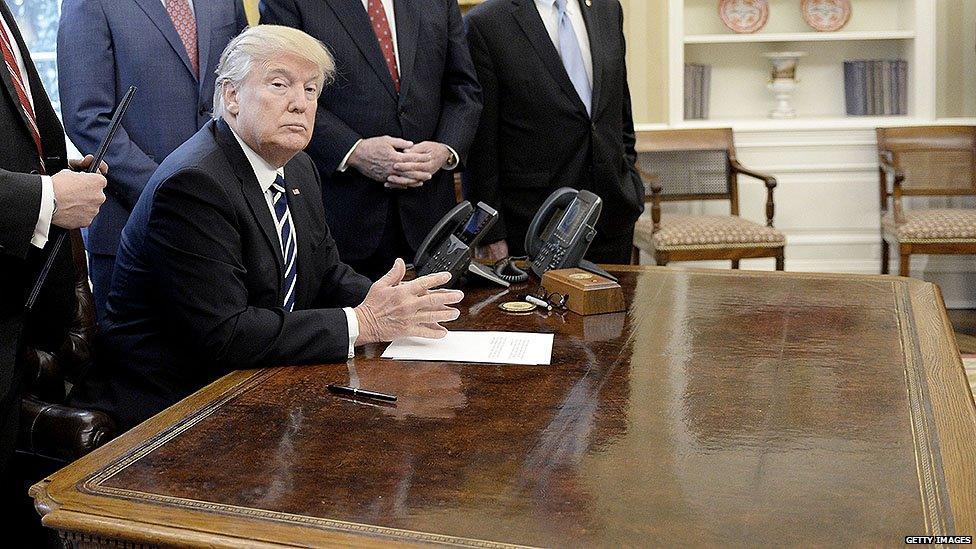
Donald Trump signed an executive order which says sanctuary cities "willfully violate federal law"
But Khadijo also sees positives in the current attitudes towards migrants and refugees.
"It is an opportunity to teach and inform," she says.
"Maybe people will be more open minded when they actually meet a refugee person like me, who has been successful and who has been integrated to a city, who has been giving back and is very involved in the community."
Khadijo says she was shocked when one of her housemates turned on her in recent weeks, despite previously telling her she didn't see her as part of the refugee crisis.
"I couldn't believe the Koran, that I believe and respect, was all over the bathroom," she says.
"It was too many things happening at once - where people are attacking you, the government is attacking you, the president is one side and the people are one side. I couldn't believe it."
She tells Newsbeat the police did not respond when she reported it as a hate-crime and that she later moved out of the accommodation and back in with family.
"I didn't feel secure or safe there [in the student housing]. Whatever she [her roommate] did, it was either towards me or the religion, I had no idea," she says.
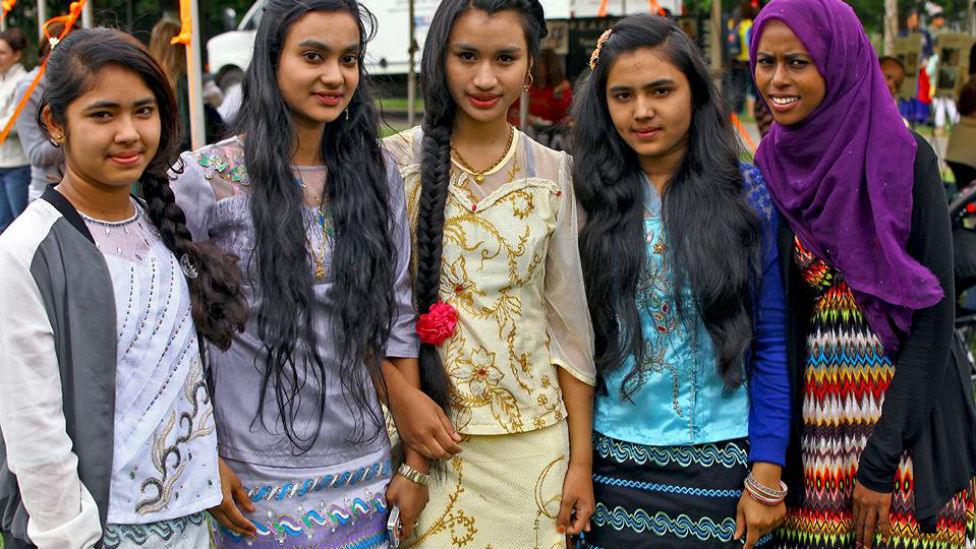
Khadijo (right) has been active in the refugee community in Syracuse
Khadijo is studying international relations at university and hopes to return to the camp in Kenya where she lived as a young child.
"My long term goal is to work with the United Nation as someone who has had the refugee experience and knows how to interact with them," she says.
"Maybe I might have different ideas about how to deal with what is going on and make a difference to the lives of people who are living in the camps."
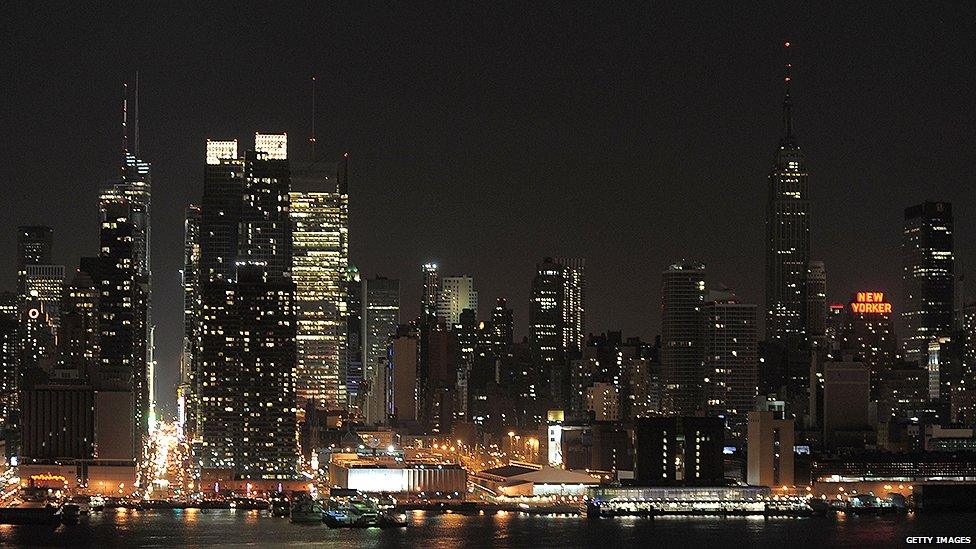
New York is one of many sanctuary cities where illegal immigrants can live without fear of prosecution or deportation
President Trump has threatened to withdraw funds to sanctuary cities in the US if they do not reject their status and help with his planned deportation process.
Clearly, this stance makes Khadijo nervous.
"I just feel like as human beings, we shouldn't look at each other as being documented or undocumented," she says.
"Most people who are here are running away from war torn or natural disasters or who are ill and who are trying to survive. They don't have the resources available to them in their homes.
"They need a place where they can feel safe.
"If I was to knock on your door and say 'I'm dying, please save me', what are you going to do - ask for ID?"
But she says if America will not accept immigrants, legal or otherwise, then they should take action abroad to help refugees.
"Even if the US doesn't take people in, I hope they would aid them in their home country or wherever they are," she says.
Find us on Instagram at BBCNewsbeat, external and follow us on Snapchat, search for bbc_newsbeat, external